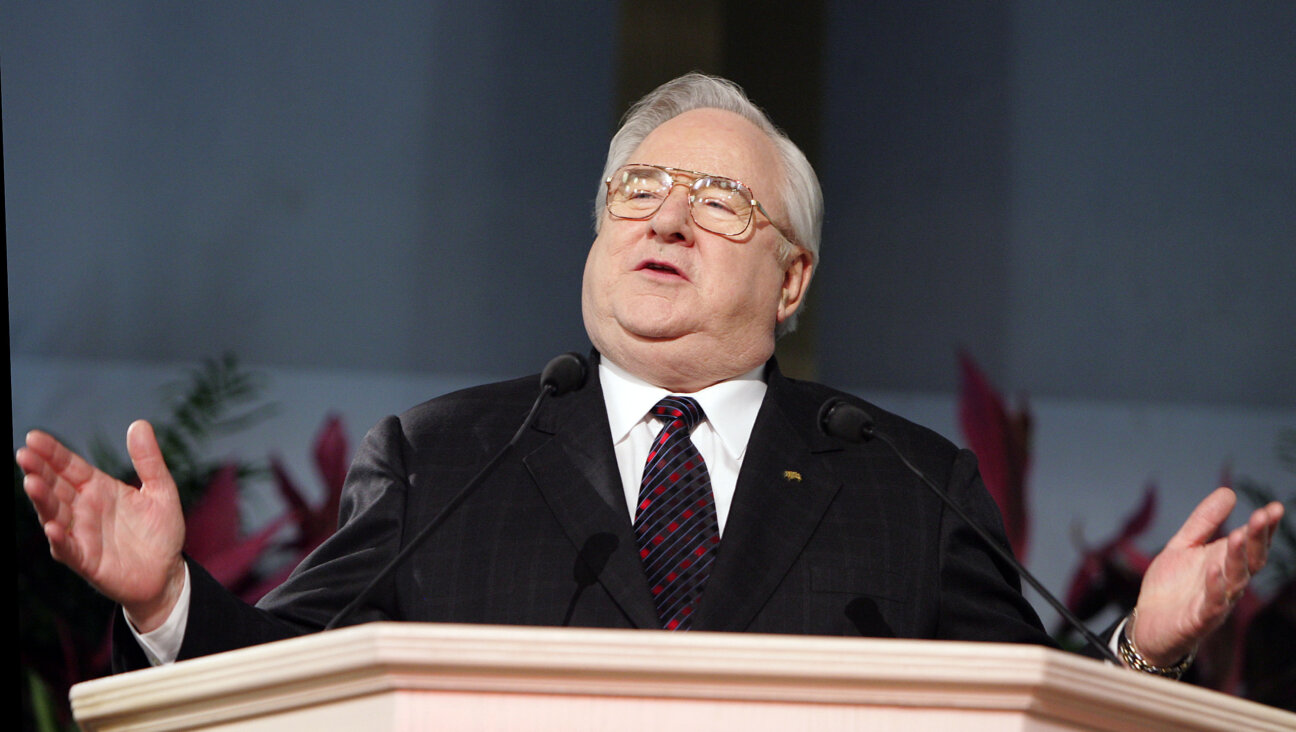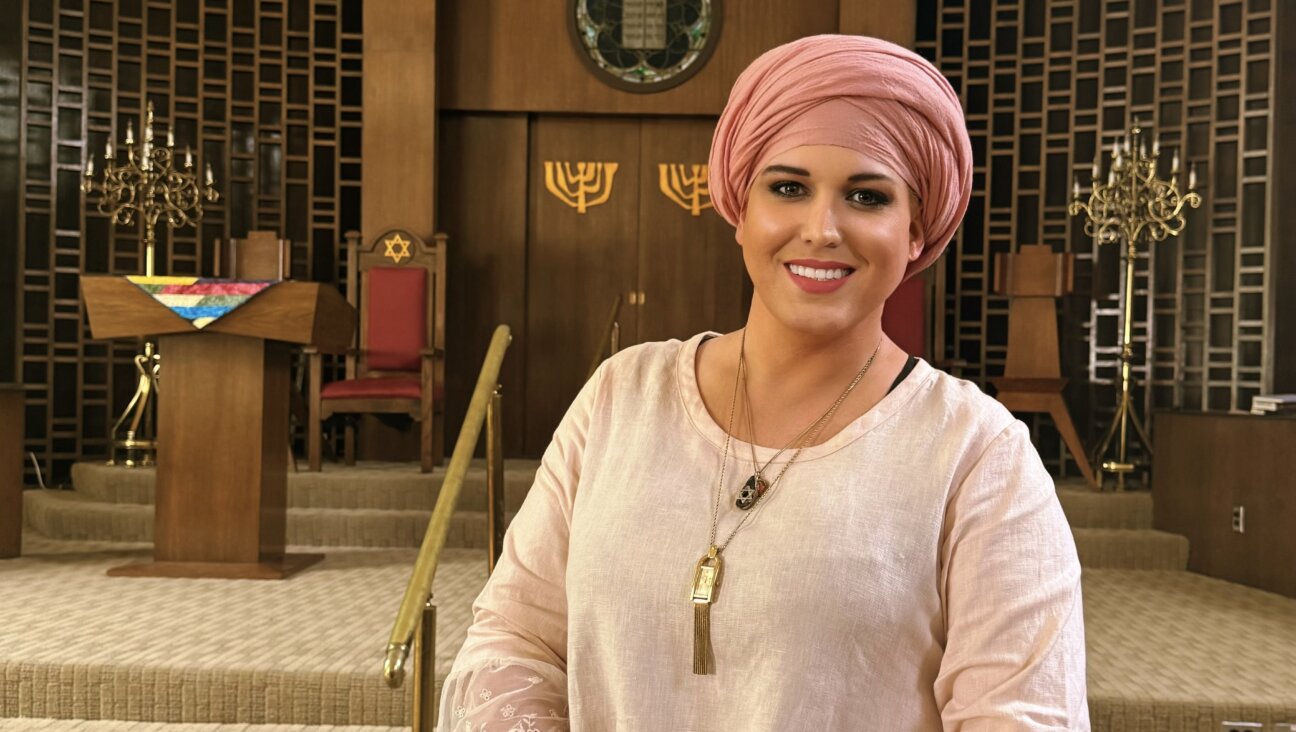Leah Garrett on the Greatest Generation of American Novelists

Image by Courtesy of Leah Garrett
Leah Garrett, author of “Young Lions: How Jewish Authors Reinvented the American War Novel,” is great-great-granddaughter of Baruch Charney Vladeck, long-time manager of the Yiddish “Forverts.” She is professor of contemporary Jewish life and culture at Monash University in Melbourne, Australia. An expert on Yiddish travel writing and the effect of Richard Wagner’s music on Jewish culture and history;, she also edited works by Lamed Shapiro. Recently “The Forward’s” Benjamin Ivry spoke to Professor Garrett about Jewish writers and their depiction of war.
Benjamin Ivry: Among novels published in 1948 dealing with Jewish military life in World War II were Mailer’s “The Naked and the Dead,” Shaw’s “The Young Lions,” and Merle Miller’s “That Winter.” Why in 1948 was the subject of Jews in the war so fashionable?
Leah Garrett: I thought about that myself. The timeline for publication meant the writers had to return from [military service], write their books, and get a publishing contract, so it took about three years after the war was over. Why did publishers commit to this? Anti-Semitism became trendy around 1947 with “Gentleman’s Agreement” and Jean Paul Sartre’s “Anti-Semite and Jew.”
Lions, mentioned in Shaw’s title and your own, are described by science writers as lazy beasts who let the females of the species do most of the hunting. Yet the writers you describe, apart from Martha Gellhorn, who published “The Wine of Astonishment” that year, were all men. Why?
There were very few WWII novels by American women at all. I think it was because the notion of the ideal soldier was so imbued with masculine identity, breaking free of marriages and becoming involved with prostitutes and love affairs. This process was fashioned around masculine ideas and there was no room for female soldiers. For the most part, Jewish women do not appear in these books, in which Jewish soldiers marry non-Jewish women as a final way of becoming totally American. In the 1930s, novels by Jewish women were all over the place, but [the late 1940s] was really the era of the Jewish man.
Gellhorn’s “The Wine of Astonishment” tells how Private First Class Jacob Levy witnesses the liberation of Dachau concentration camp, and afterwards deliberately runs his car into a group of German civilians, killing three of them. With this Quentin Tarantino-like revenge fantasy, was Gellhorn, who was married to Ernest Hemingway when she visited Dachau as a journalist, trying to out-macho her famous husband?
That’s a really good question. Martha Gellhorn’s book was the only one I covered in the book that was not a bestseller. My guess is that she went too far out with that scene, so it may have discouraged readers. On D-Day, Gellhorn managed to get into the front lines and Hemingway did not, but even so he managed to overshadow her as a war reporter. She was one of the few journalists present at the liberation of the death camps, and she says the experience transformed her completely. The only way she could get her head around it was this revenge fantasy, and after that she became a really staunch Zionist.
In “The Naked and the Dead,” Mailer’s central characters, Roth and Goldstein, are Jewish soldiers with “loving wives and stable families to whom they want to return,” compared to non-Jewish soldiers who see women as those “they abuse and who abuse them.” Isn’t this ironic, since among his six marriages, in 1960 Mailer notoriously stabbed his wife Adele, seriously wounding her?
During the war, Mailer was in a very stable marriage with Beatrice Silverman, a Jewish woman, but later he did not want to raise his children as Jewish and wanted to be a great American writer, not a Jewish writer. He also later denied there was anti-Semitism in the army, even though “The Naked and the Dead” discusses it. Mailer’s character Goldstein has a rich Jewish life and, weirdly enough, is the most well-rounded Jewish character in any of these novels of the time. The Mailer who shows up later is not the same Mailer who was writing home to his wife Bea.
Merle Miller’s “That Winter” features Lew Colinsky who changes his last name to Cole and marries an anti-Semitic Catholic woman, in response to anti-Jewish persecution he had experienced in the Army. You compare Lew’s decision to hide his Jewishness to Miller’s own real-life marriage to a woman despite being a gay man. Aren’t Jewish and gender identities rather different, which might explain why after the war, more Jews fought for African-American rights than for gay rights?
I totally agree. The reason I made that connection was that I read Merle Miller’s writings about coming out, where he kept connecting homosexuality to being a Jew. In James Jones’ “From Here to Eternity,” the main character, who is Jewish and also gay, ends up committing suicide. Other writers also conflate Jewishness, homosexuality, and otherness. For some reason, these writers in the 1940s were involved with the idea of hiding Jewishness as one would hide other minority identities.
Jewish critics including Harold Ribalow, Alfred Kazin, and Leslie Fiedler faulted “The Young Lions” for depicting nothing positive about Jewish soldiers. As Ribalow wrote in 1949, these Jews “have no Jewish education to speak of. They seldom discuss Judaism or Jewishness in any reference other than antisemitism, or how being a Jew instills in them a feeling of alienation.” Did Shaw hope to appeal to a wide range of readers, not just Jewish ones?
For most of the writers, that’s exactly what it was. I was stunned about how the novels differed from histories of American Jewish service in WWII, such as “GI Jews.” The majority of Jews returned to their Jewish roots in the military, but in these novels, these soldiers were only Jewish as victims. The authors wanted to appeal to mainstream American readers. They weren’t interested in talking about synagogue and shul, and that’s exactly what Jewish critics were attacking them for, while non-Jewish critics attacked the books for being too Jewish. They felt the Great American Novel had to be universal, meaning White Anglo-Saxon Protestant. But thank God for Jewish critics who were writing against this at the time.
In an often-overlooked novel about the Pacific, Ira Wolfert’s “An Act of Love,” Harry Bruner, a young Jewish lawyer from Newark, claims as a combat soldier that “Americans were stronger enemies of his [as a Jew] than the Japanese could ever be.” Wasn’t this a naïve, sentimental, and unrepresentative viewpoint?
Yes, but you see in all the Pacific novels, even with Mailer, the Japanese are drawn more humanely than you might expect. Wolfert was not particularly concerned with the Japanese, but was asking Americans if they wanted to be like Germans and hate a specific population. He was really talking about the Jews. Wolfert was trying to use it as a weapon against anti-Semitism. Of all the novels I talked about, his was far and away the most brutally attacked by critics as sentimental, about ideologies he wanted to put forth.
“The Caine Mutiny” by Herman Wouk, who celebrated his centenary in 2015, argues that Jewish soldiers should just obey orders and not question authority, without any individual or dissenting voice. Isn’t that a kind of Fascist ideal?
Wouk was far and away the bestseller of anyone I talked about. What Wouk was saying was exactly in the trend of the conservative McCarthyist dogma that we should follow the military and not ask questions. His main point in the 1950s when Americans were going back to war, this time in Korea, was that American Jews should say loudly and strongly that we are patriotic and grateful to America for saving the Jews during WWII.























